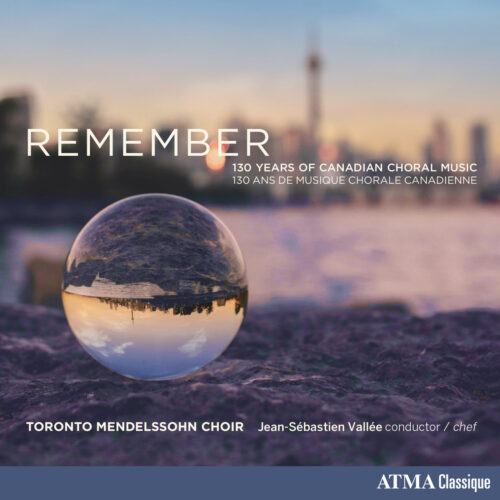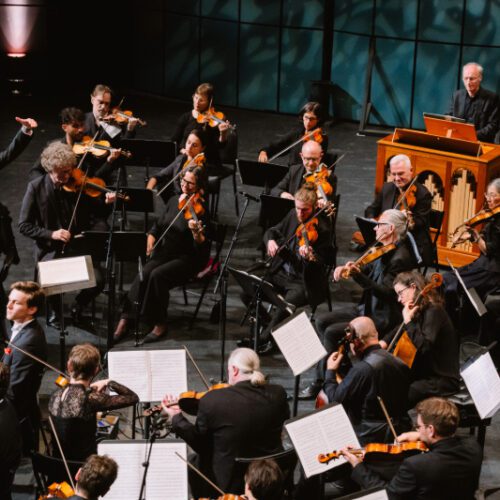On Friday, the renowned Toronto Mendelssohn Choir released its souvenir album, Remember, to mark 130 years of existence. The album traces the legacy of Canadian choral music that has had such an impact on the choir. It features many of Canada’s musical luminaries: Stephan Chatman, Healey Willan, Imant Raminsh, Andrew Balfour, as well as a number of obscure or forgotten composers, and also includes Mendelssohn’s Tichte Mich Gott, the first work performed by the choir.
Musically, there’s little or nothing to say. Whether with the 20-strong chamber choir or the 100-strong large ensemble, the quality is top-notch. French pronunciation is sometimes imprecise, but timbre control is exemplary. The sometimes angelic, sometimes powerful voices of the sopranos are impressive, as are the depths of the basses.
There are, however, a few catchy elements on this album. Firstly, there’s a succession of tracks with the same tempo and soaring ambiance, so listening becomes less and less active as the album progresses. Secondly, out of 15 tracks, only one is in French. Several composers who have written in French and who have made, or are still making, choral singing grow in Canada could just as easily have been featured on this album, such as Robert Ingari, Marie-Claire Saindon and Mark Sirett. Finally, it would be possible to make the same comment on the question of accompaniment, since the entire album is a capella.
All the pieces on this album are magnificent, but a few stand out. Steven Chapman’s title track “Remember” has an intimate feel, and Harry Somers’ arrangement of “She’s like the swallow” is long and varied. We also fall for “Music is Vibration” by Andrew Balfour, “Io, Io“ by the late Jocelyn Morlock, “An Apostrophe to the Heavenly Hosts” by the great Willan, and “Nothing Gold Can Stay” by Stephanie Martin rounds off the album beautifully.
























